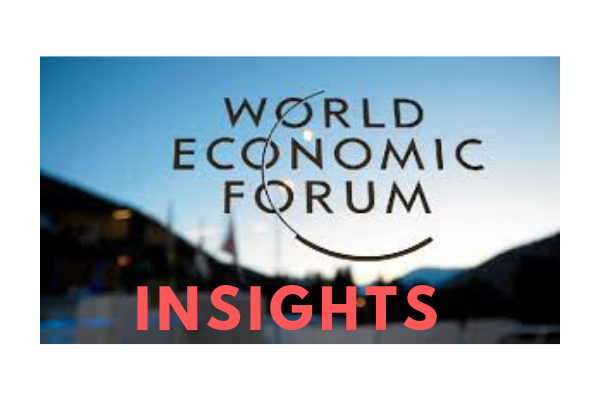The World Economic Forum (WEF), the international organisation for public-private cooperation, engages the foremost political, business and other leaders of the world to shape global, regional and industry agendas.
Its annual meeting at the end of January in Davos, witnesses heads and members of various governments, global companies and international and non-government organisations coming together to define priorities and improve the state of the world we live in . This is the most popular global event in a category other than sports that draws great participation from experts from across the globe in various fields.
DAVOS 2019
Nuggets from the world economy
• The one-week conference focussed on the destruction caused to the natural world by human irresponsibility. The repercussions in terms of climate change and the loss of biodiversity dominated the discussions. There is optimism in the air to derive a solution to this problem as human beings are essentially a ‘problem-solving species’.
• Trade tensions take a toll on the global economy, and the IMF cut its forecast for economic growth, painting a picture of weakening momentum, rising uncertainty and trade tensions.
• Womenomics has helped pull Japan back from the brink. Two million women have entered the workforce since 2012, boosting the economy.
Global trends that will change the business of business
It’s smart to hire people smarter than you
Jack Ma, executive chairman, Alibaba Group Holding, said that he believed in hiring people who were smarter than him. When he hires, he likes to spot people who are likely to become his boss in five years. The qualities that impress him in people are positivity and a never-give-up attitude. He would hire a person who is optimistic and does not complain because such people are more agile.
New-collar workers will dominate the future
IBM CEO, Ginni Rometty pointed out that as automation continues apace, the skills gap and job insecurity fears are real. Digital disruption in the manufacturing sector will create a demand for a new workforce. The traditional blue-collar and white-collar workers will be replaced by a ‘new collar’. This means, investing in skills development and responding in real time to challenges will become more important than the four-year academic degree.
Recruit women into technical roles to make machines learn more efficiently
LinkedIn co-founder and VP product, Allen Blue, has very different thoughts for handling AI and machine learning for developing algorithms for future technologies. He underlines the need to have more and more women to perform this task. He presses upon the fact that it’s important that technology be designed and built the right way, and that women more than men are suited to handle new technology. Machines will behave better when women are leading them.
Invest in training the youth and the unemployed
France’s Minister of Labour, Muriel Pénicaud, described her re-skilling programme, which includes giving 500 Euros to employees annually, to choose their own training programme. People think that they are victims of globalisation and technology when they are not in the driving seats. The only solution for that is to continuously upgrade skill-sets and invest in learning and development.
Survivors of mental health challenges are good for business
Many events in Davos-2019 focussed on discussions relating to mobilisation of people who have survived mental health challenges to include them in the workforce. John Flint, CEO, HSBC, counselled that mental-health survivors are assets, and that the society should not carry any prejudice against them. There should be a combined effort to break the stigma and support them in the workplace.
Four-day work week is beneficial
Two experts at Davos – 2019 advocated the need for a four-day week. Working less is beneficial for both the employers and the employees. According to Adam Grant, a psychologist from the Wharton School, research shows that if you reduce work hours, people can focus their attention more effectively. They produce the same result, if not more, often with higher quality and creativity. Academic research suggests that people are more loyal to the organisations that provide them flexibility and care about their lives outside of work. Multiple studies support the view that a shorter working week will make people happier and more productive.



